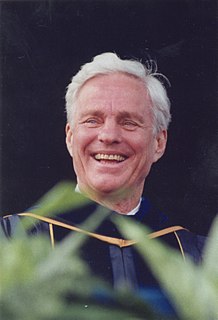
Richard Chatham Atkinson is an American professor of psychology and academic administrator. He is the former president and regent of the University of California system, and former chancellor of the University of California San Diego.
The Keck School of Medicine of the University of Southern California teaches and trains physicians, biomedical scientists and other healthcare professionals, conducts medical research, and treats patients. Founded in 1885, it is the second oldest medical school in California after the UCSF School of Medicine.
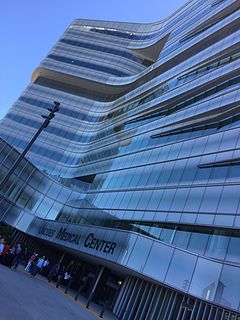
UC San Diego Health is the academic health system of the University of California, San Diego in San Diego, California. It is the only academic health system serving San Diego and one of only two Level I trauma centers in the region. In operation since 1966, it comprises the UC San Diego Medical Center, Hillcrest; Jacobs Medical Center; Moores Cancer Center; Shiley Eye Center; and Sulpizio Cardiovascular Center, as well as several outpatient sites located throughout San Diego County. The health system works closely with the university's School of Medicine and Skaggs School of Pharmacy to provide training to medical and pharmacy students and advanced clinical care to patients.
Huntington Faxon Willard is an American geneticist. In 2014, he was named to head the Marine Biological Laboratory, and a professor in human genetics at the University of Chicago. He stepped down from leading the lab in 2017 to return to research. Willard was elected to the National Academy of Medicine in 2016. Earlier, beginning in 2003 he was the Nanaline H. Duke Professor of Genome Sciences, the first Director of the Institute for Genome Sciences and Policy, and Vice Chancellor for Genome Sciences at Duke University Medical Center in Durham, North Carolina.
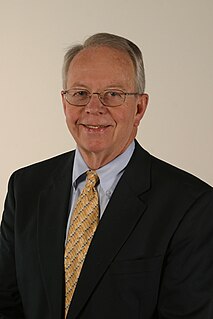
Dr. David N. Sundwall is a primary care physician and served as the Executive Director of the Utah Department of Health from January 2005 to January 2011.

The University of California San Diego School of Medicine is the graduate medical school of the University of California San Diego in La Jolla, California. It was the third medical school in the University of California system and is the only medical school in the San Diego metropolitan area. It is closely affiliated with the medical centers that are part of UC San Diego Health.
Sir Richard George Andrew Feachem, KBE, FREng is Professor of Global Health at both the University of California, San Francisco, and the University of California, Berkeley, and Director of the Global Health Group at UCSF Global Health Sciences. He is also a Visiting Professor at the University of London and an Honorary Professor at the University of Queensland.
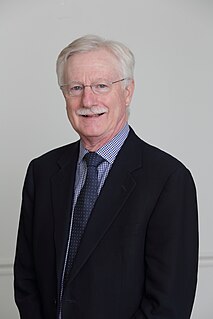
George F. Koob, is a Professor and former Chair of the Committee on the Neurobiology of Addictive Disorders at The Scripps Research Institute and Adjunct Professor of Psychology, Psychiatry, and Skaggs School of Pharmacy and Pharmaceutical Sciences at the University of California, San Diego. In 2014 he became the director of the National Institute on Alcohol Abuse and Alcoholism.
Lawton R. Burns is an American business theorist, Professor of Management and the Chairperson of the Health Care Management Department of The Wharton School of The University of Pennsylvania, and a Faculty Co-Director for the Roy and Diana Vagelos Program in Life Sciences and Management.
Joseph Boyd Martin, is the Edward R. and Anne G. Lefler Professor Emeritus of Neurobiology at Harvard Medical School. Prior to that, he served as the Dean of Harvard Medical School before stepping down on June 30, 2007.
Arnold J. Mandell is an American neuroscientist and psychiatrist. Born in 1934, in Chicago, Illinois, he received his M.D. from Tulane University in 1958. Founding chairman in 1969 of the Department of Psychiatry at the University of California, San Diego, he was, at the time of his appointment, the youngest physician ever appointed as a chairman of a medical school psychiatry program in the U.S. An early biological psychiatrist, the department was the first in the U.S. to be biologically oriented. After leaving UCSD, he has been involved in studying the basic science and applied mathematics of brain activity and behavior.

Keith Rayner was a cognitive psychologist best known for pioneering modern eye-tracking methodology in reading and visual perception.
Thomas A. LaVeist, Ph.D. is dean of the School of Public Health and Tropical Medicine at Tulane University in New Orleans, LA. Before joining Tulane he was chairman of the Department of Health Policy and Management at the George Washington University, Milken Institute School of Public Health. LaVeist focuses mainly on the development of policy and interventions to address race disparities in health-related outcomes.
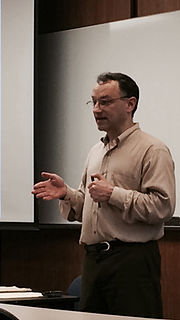
David Owen Meltzer is a Professor of Medicine at the University of Chicago. He holds faculty appointments in the Department of Medicine, Department of Economics and the Harris School of Public Policy Studies. He is Chief of the Section of Hospital Medicine at the University of Chicago Medicine, and is the Director of the Center for Health and the Social Sciences (CHeSS), as well as the Director of the Urban Health Lab in Chicago, IL. In 2015 he was appointed a member of the faculty for the forthcoming Barack Obama Presidential Center which will be located in Chicago's South Side.
Richard David Kolodner is an American scientist with Ludwig Cancer Research who has made research contributions to the genetic basis for inherited susceptibility to common cancers.
John F. Alksne is a Professor Emeritus of Neurosurgery and former Dean of the School of Medicine at the University of California, San Diego.
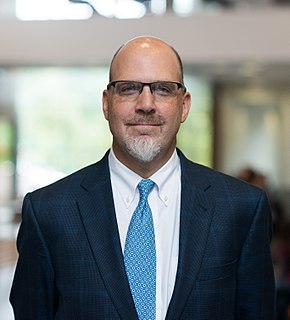
Stephen T. Parente is an American health economist. He currently serves as a Professor of Finance and the Minnesota Insurance Industry Chair at the Carlson School of Management and Finance at the University of Minnesota. In April 2017, President Donald Trump nominated Parente to be Assistant Secretary for Planning and Evaluation in the United States Department of Health and Human Services.
Robert Blendon is currently the Richard L. Menschel Professor and Senior Associate Dean for Policy Translation and Leadership Development at the Harvard T.H. Chan School of Public Health. He holds appointments as a Professor of Health Policy and Political Analysis at both the Harvard T.H. Chan School of Public Health and the Harvard Kennedy School of Government. In addition, he directs the Harvard Opinion Research Program, which focuses on better understanding of public knowledge, attitudes, and beliefs about major social policy issues in the U.S. and other nations. He currently co-directs the Robert Wood Johnson Foundation/Harvard T.H. Chan School of Public Health project on understanding Americans’ Health Agenda, including a joint series with National Public Radio and POLITICO. Previously, he co-directed a special polling series with TheWashington Post and Kaiser Family Foundation. Additionally, Dr. Blendon co-directed a special survey project for the Minneapolis Star Tribune on health care that received the National Press Club’s 1998 Award for Consumer Journalism. He also co-directed a project for National Public Radio and the Henry J. Kaiser Family Foundation on American attitudes toward domestic policy. The series was cited by the National Journal as setting a new standard for use of public opinion surveys in broadcast journalism.
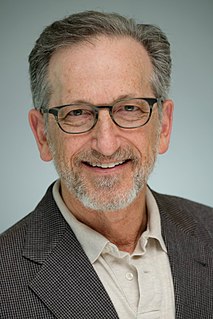
Gary S. Firestein is an American rheumatologist, professor, and founding director of the Altman Clinical and Translational Research Institute (ACTRI). at the University of California San Diego.













